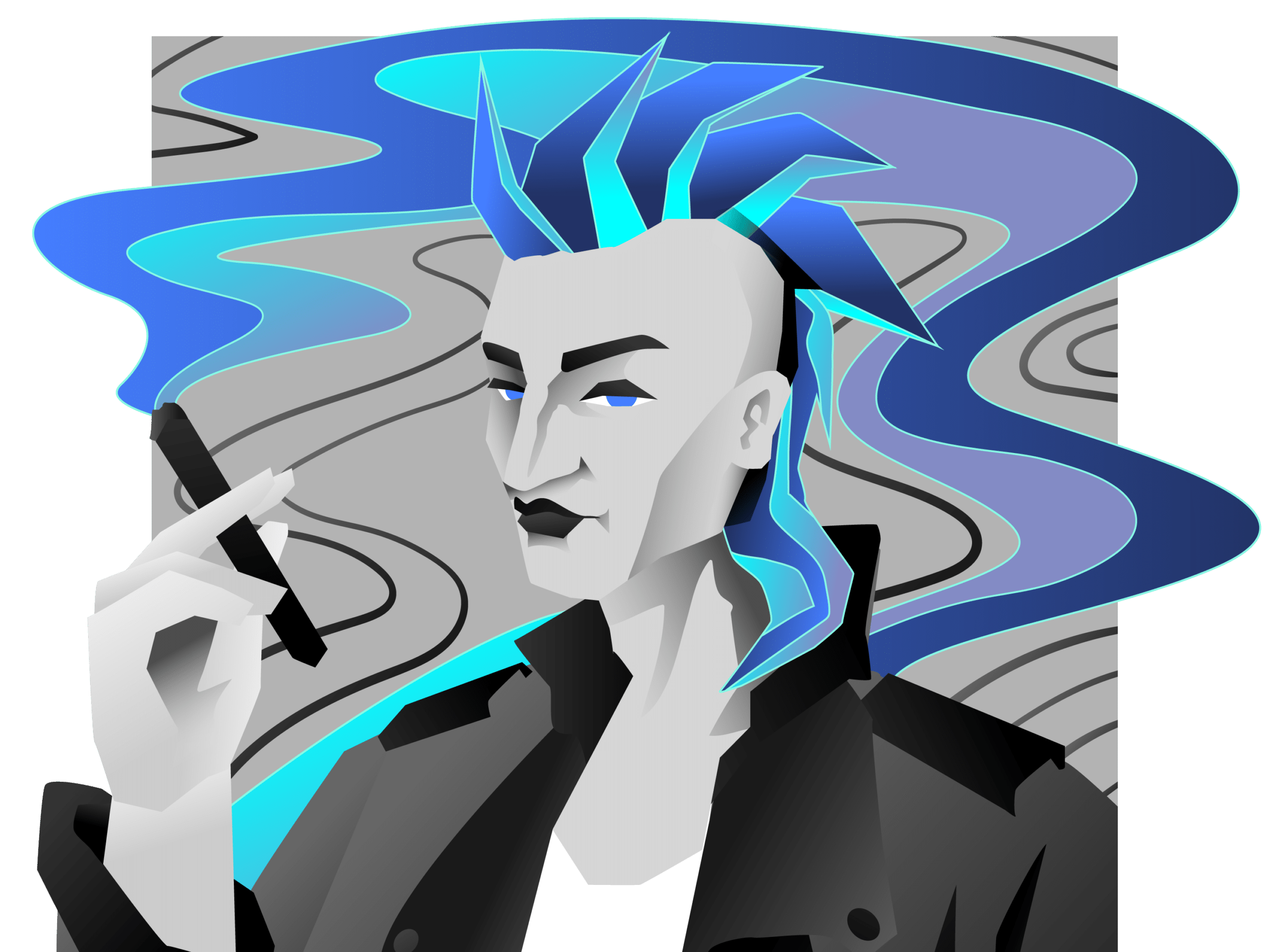In our exploration of Jungian archetypes’ influence on brand strategy so far, we’ve highlighted the potency of aligning a brand with the collective unconscious. Brand archetypes are a key element of sharp marketing strategy, essential in defining and conveying brand personality, in order to make a truly resonant emotional connection with a particular audience.
Psychologist Carl Jung, and Jung’s archetypes in particular, can be instrumental in helping to shape and refine a brand identity that connects in a truly authentic way. But each brand must be careful to do the due diligence required to choose and develop the right archetype for their business, and their ideal audience.
Different archetypes will speak to different types of people, and if there is a mismatch, this can be devastating to the success of any branded stories built upon that foundation. Strong brand strategy dictates that each brand’s archetype must be chosen with many different concerns and aspects in mind, and it is always helpful to work with a trusted partner, deeply experienced in this area. Truly effective brand strategy is always the result of collaboration and partnership between brand leadership and experienced creative partners. Delving into the realm of mythic archetypes opens up a richly resonant narrative world for brands, one where tapping into the foundational myths of psychology is not just effective—it’s transformative.
Embarking on a narrative exploration, we find ourselves delving deep into the Rebel archetype’s influence on winning brand strategy, a journey informed by the profound insights of Carl Jung. The Rebel, as an archetype, is a symbol of defiance, change, and authenticity. It is the very epitome of a spirit that refuses to conform, offering an evocative narrative that resonates with consumers on a primal level. When authentically connected with brand purpose, brand positioning, and long-term goals, the next step is to incorporate these elements into a brand strategy template, designed with a long-term plan in mind. Ultimately, successful brands understand that it’s all about making genuine connections which generate customer loyalty, expand market share, and fulfill the brand vision over time.
In the realm of branding, the Rebel archetype does not merely suggest a marketing strategy but a fundamental identity—a way of being that infuses every aspect of a brand’s expression, from its visual identity to its brand voice. This archetype is a catalyst for transformation, enabling brands to not just reach their audience but to captivate and move them, creating stories that resonate on a profound emotional level.
Real-World Examples
1.  Harley-Davidson: An Odyssey of Rebellion
Harley-Davidson: An Odyssey of Rebellion
2. 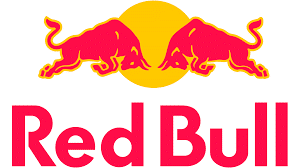 Red Bull: The Anthem of the Daredevils
Red Bull: The Anthem of the Daredevils
3. 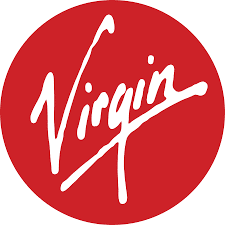 Virgin: The Disruptor’s Playbook
Virgin: The Disruptor’s Playbook
Creative Details in Iconic Campaigns
Let’s delve into the creative nuances of these campaigns to understand how they embody the Rebel archetype.
Harley-Davidson’s “Freedom Machine” Campaign
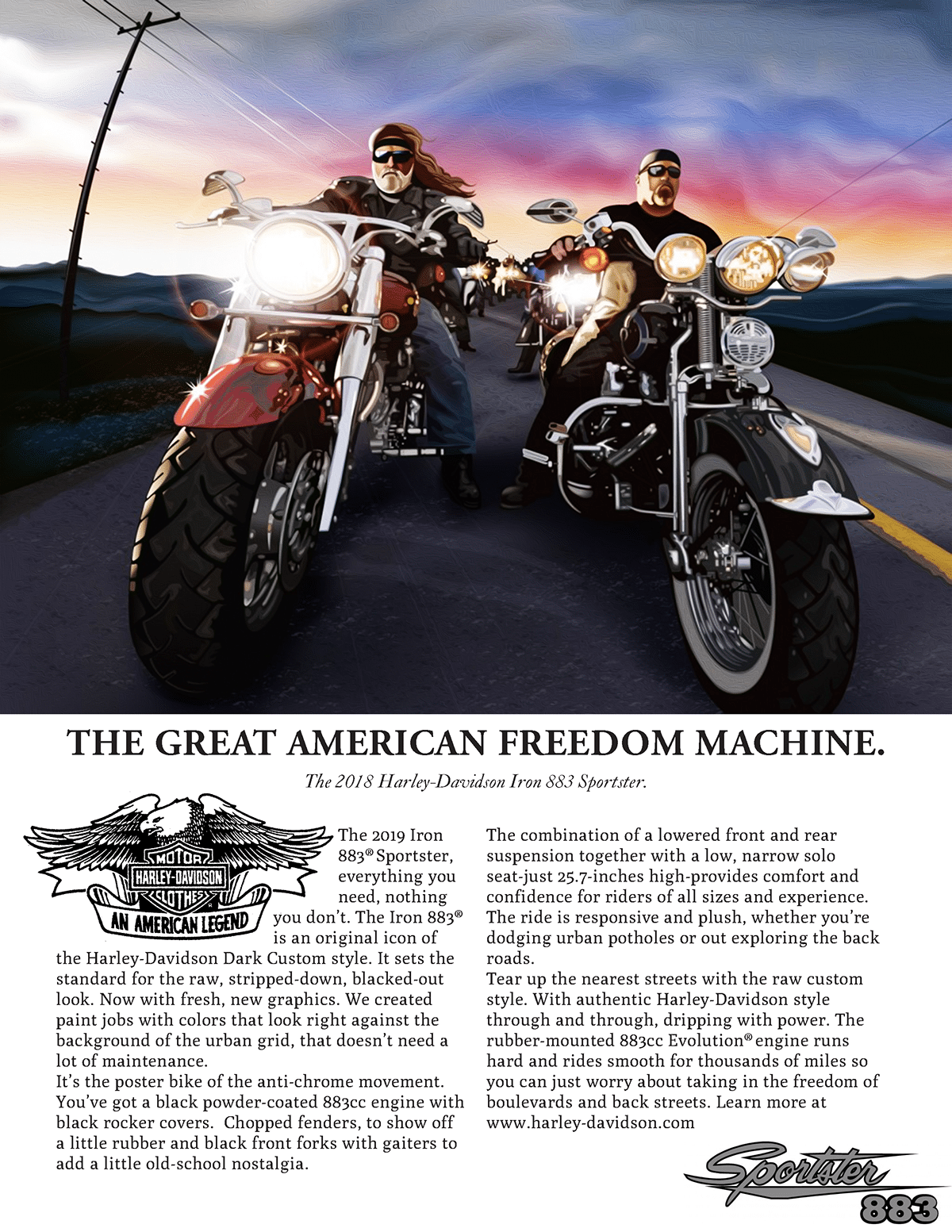
Harley-Davidson’s “Freedom Machine” campaign is a quintessential expression of the Rebel archetype in action. With its evocative tagline, the campaign doesn’t just present motorcycles; it presents the idea of the motorcycle as a liberating force. The gritty visuals and narratives celebrate the renegade spirit and promise a lifestyle of independence, which is what Harley-Davidson commits to delivering. Each bike is positioned not merely as a vehicle but as a totem of personal freedom—an escape from the confines of a mundane life.
The campaign’s resonance with the Rebel archetype is unmistakable. It’s not about selling a product; it’s about selling an act of rebellion—a tool for the consumer’s self-actualization. This taps into our most innate desire to rebel against restrictions and to forge our own paths. Harley-Davidson’s marketing strategy goes beyond the tangible features of the motorcycle to the intangible feelings it invokes—the wind on your face, the road under your wheels, the power at your fingertips, and the brotherhood that comes with being part of the Harley community.
This masterfully crafted campaign echoes the foundational myths of human psychology—the struggle for freedom and the pursuit of self-determination. It speaks to the part of us that yearns for control over our destiny, the part that wants to break away from the herd and live life on our own terms. The “Freedom Machine” campaign is a narrative that resonates not just with motorcycle enthusiasts but with anyone who cherishes the values of freedom and individuality.
The Rebel archetype, as exemplified by Harley-Davidson’s campaign, aligns with Jung’s theory of the collective unconscious by tapping into universal narratives and images that have deep psychological roots. The brand’s ability to connect with these primal stories shows a profound understanding of human nature and the universal quest for a sense of autonomy and adventure.
By embracing the Rebel archetype, Harley-Davidson’s “Freedom Machine” campaign does not merely market motorcycles; it markets a way of life. It promises an experience steeped in the essence of rebellion and freedom, transforming every ride into a statement of self and every product into a symbol of the unyielding human spirit. Harley-Davidson’s message is clear: when you choose to ride one of their motorcycles, you’re not just choosing a mode of transportation; you’re choosing freedom—the freedom to explore, to express, and to be authentically you.
The campaign’s resonance with the Rebel archetype is clear: it doesn’t sell a product, it sells an act of rebellion—a tool for the consumer’s self-actualization that appeals to our most innate desire to rebel against constrictions1.
Red Bull’s “Red Bull Stratos” campaign
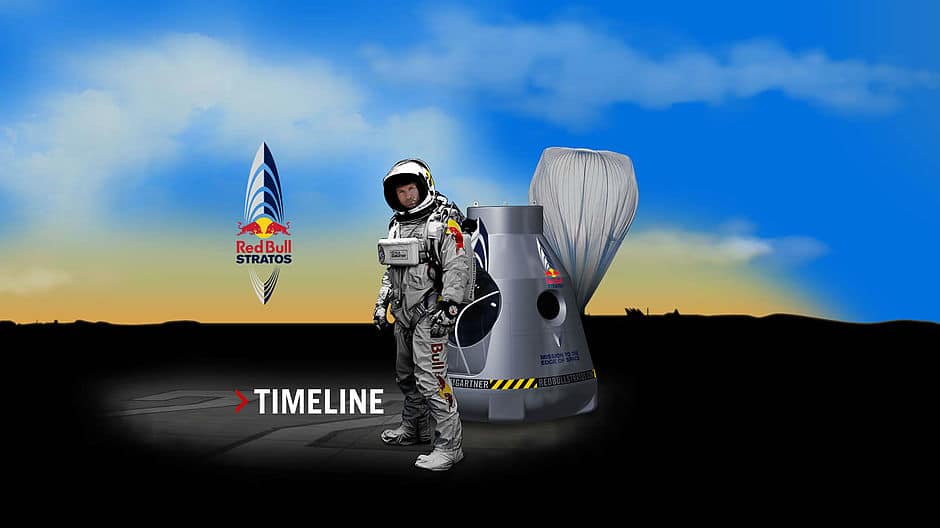
Red Bull’s “Stratos” campaign, featuring the audacious Felix Baumgartner’s stratospheric jump, is a narrative masterpiece that exemplifies the Rebel archetype. This was not merely a promotion for an energy drink; it was a marketing effort that transcended conventional advertising, symbolizing the brand’s essence and brand promise. The live broadcast captured Baumgartner’s leap from the edge of space, an event that garnered millions of viewers worldwide and epitomized the spirit of the Rebel—defying boundaries and shattering the status quo.
The “Stratos” campaign encapsulated the fusion of marketing strategy and the Rebel archetype’s principles. Baumgartner, standing at the brink of the world, represented the potential every individual holds within—the potential to transcend their perceived limits and to engage in a brand experience that promises the ultimate thrill. Through this campaign, Red Bull positioned itself not just as a beverage, but as a brand synonymous with extreme achievement and the pursuit of innovation, mirroring the brand identity with the visceral pursuit of breaking records.
Red Bull’s content speaks volumes to the target market that craves the thrill of the extraordinary, resonating with an audience that seeks to align with a brand identity that embodies their own desire for transcending limitations. The “Stratos” campaign was a clarion call to the target audience, an invitation to experience the world beyond the confines of gravity—an experience only Red Bull could facilitate.
From a Jungian lens, this campaign did more than advertise; it connected with the collective unconscious, tapping into archetypal themes of heroism and exploration that have captivated humans for millennia. It resonated with the primordial quest for flight—a dream etched deep within the human psyche, making the brand’s message a powerful narrative of human potential and aspiration.
The campaign’s strategic use of social media accounts, visual elements, and brand messaging created an integrated marketing effort that reinforced the Rebel archetype. It showed a brand strategy process that was coherent and compelling, illustrating the brand values of Red Bull as a beacon for those who dare to dream and act upon those dreams.
The “Stratos” campaign was not just about brand awareness; it was about brand alignment with the core principles of the Rebel archetype, as defined by Jung’s thinking. It appealed to our innate desire to rebel against our limitations and to redefine what’s possible, driving home the message that with the right mindset—and the right brand behind us—our personal brand story can be one of greatness and defiance.
In crafting such an ambitious and awe-inspiring campaign, Red Bull set a precedent for what it means to engage potential customers. It showcased the best way to create a customer experience that goes beyond the expected, crafting a narrative that is both inspirational and aspirational, showing that with courage and a little push from a can of Red Bull, the sky is not the limit—it’s just the beginning.
Red Bull’s content speaks to those who seek the thrill of the extraordinary, those who resonate with the archetype’s disdain for the traditional and a hunger for breaking barriers2.
Virgin’s “Don’t just play the game. Change it for good”
Brand Promise
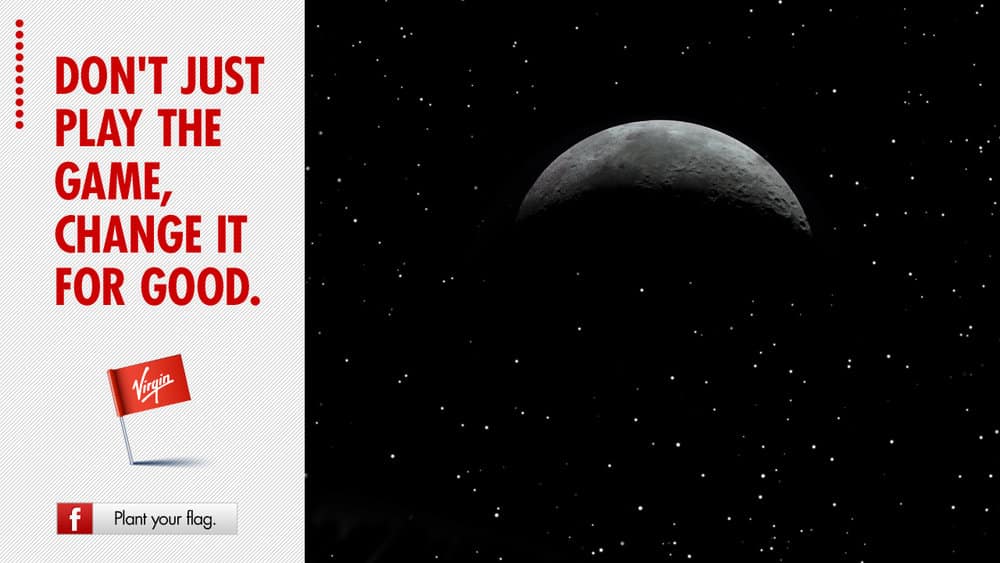
Virgin’s approach to business and branding epitomizes the essence of the Rebel archetype, exemplified by their audacious “Don’t just play the game. Change it for good” campaign. This initiative perfectly encapsulates the brand’s ethos of challenging the conventional and fostering change across various industries. From Virgin Atlantic’s groundbreaking customer service paradigms to Virgin Galactic’s audacious mission of making space travel accessible to the masses, Virgin has consistently positioned itself as a beacon of innovation and transformation.
This campaign’s creative content, with its maverick narratives and bold visuals, highlights Virgin’s identity not just as a brand that embraces trends but as one that forges them. By epitomizing the Rebel archetype, Virgin’s branding strategy resonates deeply with consumers who see themselves as agents of change—those who are not content with the status quo and seek to be part of a movement that redefines the future. The campaign reflects a brand promise of continual evolution and a brand strategy process that aims to revolutionize not only the industries it operates in but also the very expectations of its customers.
Each element of the campaign, from the strategic use of visual elements to the brand messaging across social media accounts, is designed to engage the target audience by aligning with their ideals and aspirations. Virgin’s mission statement is not a mere declaration of intent but a clarion call to those who wish to join a brand story that is steeped in the principles of the Rebel archetype. The campaign speaks to the collective desire for progress and the individual’s pursuit of personal goals, mirroring Jung’s concept of individuation—the process by which individuals integrate their consciousness and unconsciousness to become whole.
By challenging what’s possible, Virgin’s campaign does more than create brand awareness; it fosters brand kinship with ideal customers. It embodies the best way to foster a connection with potential customers, providing them with an experience that is both empowering and aligned with their values. Virgin’s message is clear: it is not enough to participate passively in the world—true fulfillment comes from actively shaping it.
The “Don’t just play the game. Change it for good” campaign is a testament to Virgin’s successful brand strategy, one that leverages the Rebel archetype to not only tell a story but to invite the audience to be co-authors of that story. It’s a strategy that assures customers that by choosing Virgin, they are choosing to embark on a journey of meaningful change—a journey that resonates with their deepest drives and aspirations, as illuminated by Jung’s transformative psychology.
By aligning with the Rebel archetype, Virgin connects with consumers who view themselves as agents of change, resonating with their desire to be associated with a brand that challenges the status quo.
The Emotional Resonance of the Rebel
These campaigns showcase the emotional power of the Rebel archetype. They craft stories that echo the timeless narrative of the Rebel, creating content that generates a visceral response. Brands like Harley-Davidson, Red Bull, and Virgin have all harnessed the Rebel archetype to tell unique stories that draw upon the rich tradition of storytelling that speaks to the fundamental aspects of our psychology.
From a Jungian perspective, these campaigns demonstrate a deep understanding of the psychological patterns that drive human behavior. They reveal how brands can leverage the collective unconscious to create strategic narratives that fulfill our need for uniqueness, our desire to rebel against norms, and our quest for individuality.
Through strategic use of the Rebel archetype, brands can forge an indelible identity that attracts and retains loyal followers. The campaigns of Harley-Davidson, Red Bull, and Virgin are testaments to the power of archetypal marketing, showing understanding and embodying the Rebel archetype can lead to deeply resonant storytelling that excites and engages.
But beware!
The use of archetypes will surely fall flat if the core values of the brand (and its offerings) do not share a direct connection—unique and authentic—with the spirit and ethos of the archetype in play. Tread carefully, and do the due diligence required to ensure your brand’s identity and positioning are codified and cultivated with expertise, and empathy.
Deepening the Narrative: The Rebel Archetype in Brand Messaging
In the orchestration of a brand’s narrative, the integration of the Rebel archetype is not just an artistic flourish—it is an essential ingredient in the alchemy of brand messaging. To fully actualize the Rebel within the brand’s storyline, a meticulous approach to the brand’s visual identity and marketing efforts is paramount. These facets must be deliberately sculpted to resonate with the essence of the Rebel, ensuring that the brand’s story is not merely a whisper in the cacophony of the marketplace but a resonant call that reverberates through the core of the target audience.
A brand’s voice, imbued with authenticity and the cardinal Rebel virtues of autonomy, defiance, and authenticity, must remain unwavering across the multitude of marketing channels. From the nuanced storytelling in traditional media to the dynamic interplay of content on digital platforms and the curated narratives on social media accounts, the brand voice must articulate a story that kindles the target market’s desire for change. This narrative must transcend the simple fulfillment of needs; it must align with the target audience’s deeper values and aspirations, embodying the best way to foster a connection that is both meaningful and enduring.
Such brand messaging, steeped in the Rebel archetype, appeals to the collective unconscious that Jung illuminated—the shared well of archetypal images and narratives that resides within us all. It taps into the psychological undercurrents that shape consumer behavior, leveraging the shared heritage of myths and legends that the Rebel represents. By articulating this deep connection, brands can establish an emotional kinship with their ideal customers, resonating with their intrinsic yearning for a product or service that echoes their personal journey towards individuation and self-realization.
Engaging the Target Market: A Rebel’s Approach to Brand Awareness
To engage the target market authentically, brands must embody the Rebel archetype not just as a motif but as a philosophy. The approach to brand awareness must transcend the mere dissemination of information—it must be a clarion call to action. Marketing strategies infused with the Rebel’s spirit do not passively court the target audience; they beckon them to partake in the brand’s odyssey, to embrace their inner Rebel, and to become protagonists in a narrative that aligns with their deepest convictions and desires.
This approach to brand awareness is rooted in the brand’s mission statement, which should not be a static proclamation but a living manifesto that infuses every facet of the customer experience. It’s a strategic vision that magnetizes potential customers, drawing them into a brand universe that consistently delivers on its brand promise. This is a customer experience that is not just a transaction but a transformative interaction, one that reflects the brand’s unique identity and values.
By inviting the target market to engage with the brand’s story, a Rebel-centric strategy ensures that brand awareness becomes brand allegiance. It’s an invitation to a shared journey that offers the customer more than a product or service—it offers a sense of belonging to a brand that stands as a paragon of change and challenges the status quo. Through this engagement, a brand can build a community of loyal customers who do not merely use the brand but live it, creating a potent brand story that is both communal and personal.
In weaving these narratives and strategies, the brand not only captures the imagination of its target audience but also fosters a brand experience that is vibrant and life-affirming. The Rebel’s call to action is a powerful motif that aligns with Jung’s conception of the archetypes as dynamic forces that shape our stories and identities. It is a call that is both ancient and immediate, beckoning the customer to join in a dance of defiance and authenticity that has been a hallmark of the human experience since time immemorial.
Scientific Backing
The effectiveness of utilizing archetypes in branding is not just anecdotal. David A. Aaker and Erich Joachimsthaler3 found that brands successfully employing archetypes have a significant competitive edge. Their research aligns with the work of Professor Gerald Zaltman, who pointed out that 95% of all cognition occurs in the unconscious mind.
Conclusion
The Transformative Power of the Rebel
The Rebel archetype holds transformative power in the realm of brand strategy. It offers a path to not only connect with the target audience but also to engage them on a deeper, more emotional level. By understanding and leveraging the Rebel archetype, brands can craft stories that are not just marketing campaigns but movements that tap into the collective unconscious, resonating with the psychological needs and desires of their audience.
As we continue to explore the remaining archetypes in this enlightening series, we will delve into the other aspects of human psychology that extraordinary brands leverage to connect with their audiences. Branding strategy is both an art and a science, and working with a partner experienced in this area is invaluable. The Rebel archetype, when integrated with skill and insight, can lead to a brand’s long-term success in today’s competitive marketplace.
*This article, part of a series on Jungian archetypes in brand strategy, demonstrates how brands can use these primal myths to craft emotionally charged narratives that resonate with their audiences.*
Stay tuned as we explore the remaining archetypes in this enlightening series…
References:
1. Hollenbeck, C.R., & Zinkhan, G.M. (2006).
2. Thompson, C.J., et al. (2006).
3. Brown, S., et al. (2003).
4. Aaker, D. A., & Joachimsthaler, E. (2000).

